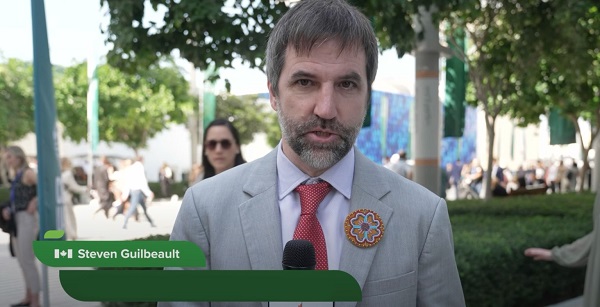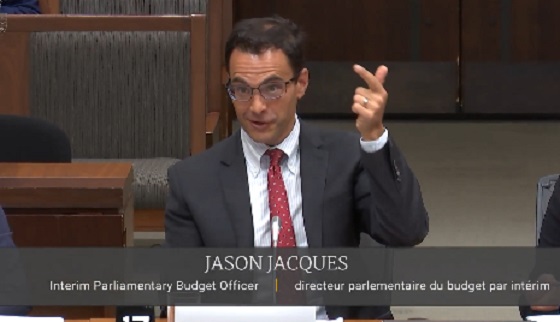Alberta
Alberta puts pressure on the federal government’s euthanasia regime

From LifeSiteNews
Premier Danielle Smith is following through on a promise to address growing concerns with Canada’s euthanasia regime.
Alberta Premier Danielle Smith has sent a mandate letter to Justice Minister Mickey Amery directing him to draft and introduce new legislation on euthanasia to ensure better oversight of so-called “medical aid in dying,” or “MAiD” and to prohibit it for those suffering solely from mental illness.
In December of last year, Smith’s United Conservative government indicated that they would seek to address growing concerns with Canada’s euthanasia regime. Mainstream media outlets attacked the move, with the CBC actually reporting that: “Some are concerned new limitations could impact already vulnerable Albertans.”
Premier Smith has now followed through on that promise. The September 25 mandate letter, which lays out directives on a wide range of issues, calls for the justice minister to take steps to protect vulnerable Albertans suffering from mental illness:
As lead, work with relevant ministries to introduce legislation to provide greater oversight and appropriate safeguards for medical assistance in dying and prohibit medical assistance in dying where a person seeks this procedure based solely on a mental illness.
In an email to the CBC, Amery stated that while euthanasia law is under federal jurisdiction, healthcare falls under provincial jurisdiction. The CBC falsely claimed that mental illness “has never been an approved sole eligibility factor for MAID, though the government has considered permitting it.” In fact, the Trudeau government passed Bill C-7, which legalized MAID for those struggling with mental illness, in 2021.
That eligibility expansion has been delayed twice—in 2023 and 2024—and is now slated to come into effect in 2027. Despite those delays, Bill C-7 is still law. MP Tamara Jansen and MP Andrew Lawton are currently championing Bill C-218, the “Right to Recover Act,” which would reverse this and make it illegal to offer or perpetrate euthanasia on someone struggling solely with mental illness.
The CBC’s coverage of this move was predictably repulsive. In addition to their disinformation on euthanasia for mental illness, they reported that “Smith’s letter directing new provincial legislation on MAID comes almost a year after the government surveyed just under 20,000 Albertans on whether they think the province should step in. Nearly half of those surveyed disagreed with putting in more guardrails on MAID decisions.”
“Nearly half” is an unbelievably deceitful way of reporting on those results. In fact, 62% were in favor of legislation for a dedicated agency monitoring euthanasia processes; 55% were in favor of a MAID dispute mechanism allowing families or eligible others to challenge decisions to protect vulnerable people, such as those with disabilities or mental health struggles; and 67% supported restricting euthanasia to those with physical illnesses rather than mental illnesses. The CBC did not report on a single one of those numbers.
Provincial legislation to protect people with mental illnesses is badly needed, although I pray that by the time Justice Minister Amery gets around to drafting it, the Right to Recover Act will be passed in Parliament, and provincial action will be unnecessary. In the meantime, it is increasingly clear that much of Canada’s mainstream press coverage of this issue actively threatens the lives of the suicidal and those struggling with mental illnesses. If their dishonesty and attempts and manufacturing consent were not so routine, they would be breathtaking.
Alberta
Taxpayers: Alberta must scrap its industrial carbon tax

-
Carney praises carbon taxes on world stage
-
Alberta must block Carney’s industrial carbon tax
The Canadian Taxpayers Federation is calling on the government of Alberta to completely scrap its provincial industrial carbon tax.
“It’s baffling that Alberta is still clinging to its industrial carbon tax even though Saskatchewan has declared itself to be a carbon tax-free zone,” said Kris Sims, CTF Alberta Director. “Prime Minister Mark Carney is cooking up his new industrial carbon tax in Ottawa and Alberta needs to fight that head on.
“Alberta having its own industrial carbon tax invites Carney to barge through our door with his punishing industrial carbon tax.”
On Sept. 16, the Alberta government announced some changes to Alberta’s industrial carbon tax, but the tax remains in effect.
On Friday night at the Global Progress Action Summitt held in London, England, Carney praised carbon taxes while speaking onstage with British Prime Minister Keir Starmer.
“The direct carbon tax which had become a divisive issue, it was a textbook good policy, but a divisive issue,” Carney said.
During the federal election, Carney promised to remove the more visible consumer carbon tax and change it into a bigger hidden industrial carbon tax. He also announced plans to create “border adjustment mechanisms” on imports from countries that do not have national carbon taxes, also known as carbon tax tariffs.
“Carney’s ‘textbook good policy’ comments about carbon taxes shows his government is still cooking up a new industrial carbon tax and it’s also planning on imposing carbon tax tariffs,” Sims said. “Alberta should stand with Saskatchewan and obliterate all carbon taxes in our province, otherwise we are opening the door for Ottawa to keep kicking us.”
Alberta
$150 a week from the Province to help families with students 12 and under if teachers go on strike next week

Alberta’s government will be providing financial assistance and educational resources to support parents and students in the event of a teacher strike.
Eligible parents or guardians would receive $30 per day, or $150 per week, per student for the duration of the ATA’s labour action. The first payment will be made on Oct. 31.
More information about the application process will be available shortly. To get ready, parents can set up an Alberta.ca verified account at alberta.ca/alberta-ca-account.
Alberta teachers have rejected a four-year deal, putting the ATA in a position to strike by Oct. 6, leaving countless families uncertain about what happens next.
As a teacher strike becomes more likely, Alberta’s government has developed a responsible plan to support kids and keep them learning while paying parents back for unexpected education expenses in the event of a strike.
This plan includes a new payment program to directly support parents experiencing financial strains because of the strike. An online learning toolkit following the grades K-12 curriculum has also been developed to support students with at-home learning.
“I’m disappointed that ATA members have rejected the settlement, choosing instead to go on strike. Students and families need to know we will support them during this time of uncertainty, so we are releasing our plan today to provide payments directly to families and to support at-home student learning.“
“Our goal is to keep our kids in the classroom. Our government is ready, willing and able to head back to the bargaining table at any time.”
With 80,000 new students joining our education system in the last two years alone, Alberta needs this investment now, more than ever. That’s why Alberta’s government invested $8.6 billion to build and renovate more than 130 schools. This is more than any provincial government has invested in the history of the province.
The government is aware the ATA may still choose to go forward with their plan to strike. In the event of a strike, Alberta’s government has a balanced plan to support students and parents through this challenging time.
Payment program
To help ease the extra costs families may face while children are away from their desks during labour action, Alberta’s government is introducing a new payment program for parents. This program would be available to parents and guardians of students aged 12 and under who attend a public, separate or francophone school and are affected by teacher strikes.
Eligible parents or guardians would receive $30 per day, or $150 per week, per student for the duration of the ATA’s labour action. The first payment will be made on Oct. 31.
The payments would support families while students are unable to attend school to help offset additional costs like childcare, educational supports such as tutoring, or other activities to keep students engaged.
More information about the application process will be available shortly. To get ready, parents can set up an Alberta.ca verified account at alberta.ca/alberta-ca-account.
Learning supports
To give families flexibility during a potential labour disruption, Alberta Education and Childcare created a free toolkit for parents to support their child’s learning in the event that schools are closed.
The toolkit provides resources that follow the grades K-12 curriculum. The resources are available in English, French and French immersion and focus on the core subjects of language arts, social studies, math and sciences. These resources will be updated weekly.
“We understand that the possibility of a teacher strike brings uncertainty and concerns for families. That’s why Alberta’s government is supporting families with practical tools and resources to help maintain their child’s learning if schools are closed. This parent toolkit offers flexibility, choice, and curriculum-aligned materials to empower families, ease the pressure they’re facing and keep students engaged.”
Classroom complexity funding
Throughout bargaining, teachers have advocated for more support to deal with the issue of increasing classroom complexity. Despite the teachers voting to reject this deal, Alberta’s government remains committed to help address increasing classroom complexity head on and will be allocating $100 million per year over three years. These funds will hire 1,500 net new education assistants. To further address classroom complexity, the remaining funds may be used to hire up to 725 more education assistants, or used to complete autism, mental health, occupational therapy, physiotherapy, or speech-language pathology assessments for students.
Alberta’s government has a strong, responsible plan to keep students learning. No matter what the union decides, government will remain unwavering in our commitment to stand with families.
Key facts:
- The offer rejected by ATA members would have made Alberta teachers the highest paid in Western Canada after provincial taxes.
- It would have provided a general wage increase of 12 per cent over the four-year term, as well as a wage grid unification which would have provided more than 95 per cent of teachers even larger wage increases up to 17 per cent.
- It would have provided tremendous investments in classroom supports to help alleviate population growth and classroom complexity pressures with the hiring of 3,000 new teachers in public, separate and francophone classrooms.
Related information
-

 Fraser Institute1 day ago
Fraser Institute1 day agoAboriginal rights now more constitutionally powerful than any Charter right
-

 Alberta24 hours ago
Alberta24 hours ago$150 a week from the Province to help families with students 12 and under if teachers go on strike next week
-

 National14 hours ago
National14 hours agoCanada’s birth rate plummets to an all-time low
-

 Alberta2 days ago
Alberta2 days agoAlberta refuses to take part in Canadian government’s gun buyback program
-

 Censorship Industrial Complex2 days ago
Censorship Industrial Complex2 days agoCanada To Revive Online Censorship Targeting “Harmful” Content, “Hate” Speech, and Deepfakes
-

 Alberta2 days ago
Alberta2 days agoOrthodox church burns to the ground in another suspected arson in Alberta
-

 espionage12 hours ago
espionage12 hours agoNorth Americans are becoming numb to surveillance.
-

 Agriculture1 day ago
Agriculture1 day agoCarney’s nation-building plan forgets food





